Report by Dr Kelechi Eleanya and Dr Alan Channer
The EverGreening Network for Forest and Land Restoration (ENFORLAR) – the Nigerian chapter of the Global EverGreening Alliance – is spearheading the restoration of degraded landscapes across Nigeria’s drylands.
To galvanise these efforts, ENFORLAR organized a 2nd Drylands Restoration Conference in the city of Kano, from November 25th-28th, with the theme: ‘Restoring Landscapes and Livelihoods with trees”. Building on the first Drylands Restoration Conference, held in Katsina State in June 2018, the objective of this second conference was to set out a detailed vision for evergreening across Northern Nigeria.
‘Restoring degraded landscapes in Nigeria’s drylands represents one of the most pressing needs for a country with a very high population growth rate, huge dependency on natural resources for energy and the need to support rural livelihood strategies,’ said Dr Kelechi Eleanya, Director of ENFORLAR and coordinator of the conference. ‘In addition, this is a must for tackling the menace of desertification and the threats of global climate change.’
Over 100 people participated in the conference, which was declared open by Kano State Commissioner for Environment, Dr. Kabiru Getso. Dr Getso highlighted the urgent need for concerted efforts to address land degradation and climate change. He cited a recent global report on air quality index that ranked Kano as one of the worst performing cities in the world. He emphasised the part trees can play to help counteract this.
The Emir of Kano was represented by the DanMajen Kano, Yahaya Inuwa, who noted the need to bring back that culture where trees co-existed with mankind, with multiple benefits.
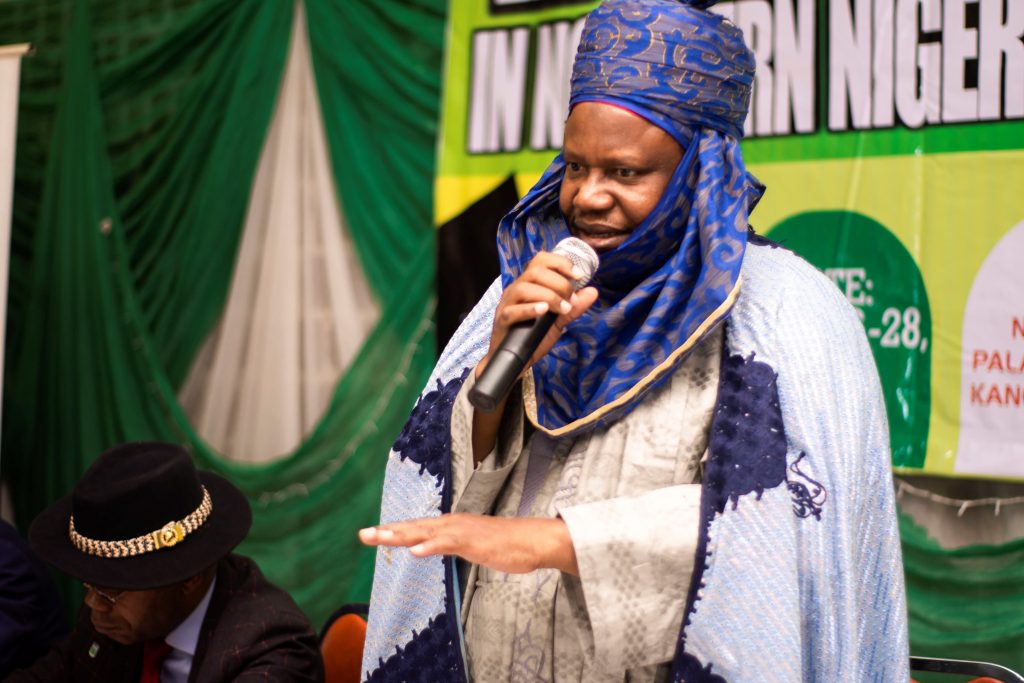
Dan Majen Kano Representative of the Emir of Kano at the Event
In a video message, the father of FMNR, Tony Rinaudo explored the historical dimensions of FMNR in Niger republic, and how this has transformed millions of lives. Rinaudo observed that this has many links to Nigeria, and encouraged participants to embrace FMNR as a strategy for livelihood security and wealth creation for rural households.
Stakeholders from the Federal Ministries of Environment and Agriculture, the National Agency for the Great Green Wall, State Ministries of Agriculture and Environment for the 11 frontline States in northern Nigeria, local leaders and farmers’ organizations, pastoralists organizations, The Global EverGreening Alliance, the Global Shea Alliance, Heinrich Boll Foundation, Catholic Relief Services and other development NGOs, Small- Scale Women Farmers Organization of Nigeria (SWOFON), scientists, the business community, development workers, heads of research institutions, government agencies and the banking sector, community and faith leaders, traditional rulers, the media and youths all engaged attentively in plenary sessions and brainstormed together in break-out groups.
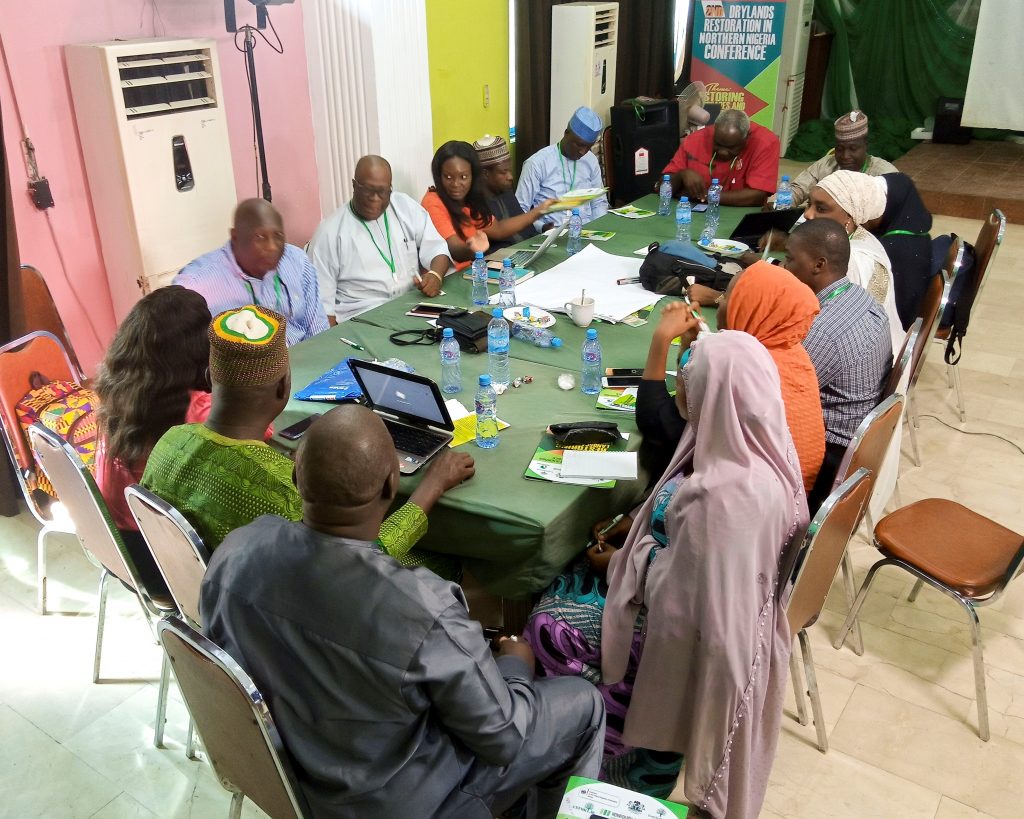
One of the groups during the break out session
Creative ideas were generated on how to restore land with trees, sustainable pastoralism, and community-based approaches to save our lands and livelihoods, while also calling on government and all stakeholders to pay closer attention to the importance of trees and their roles for human existence at all levels of development for a more sustainable Nigeria.
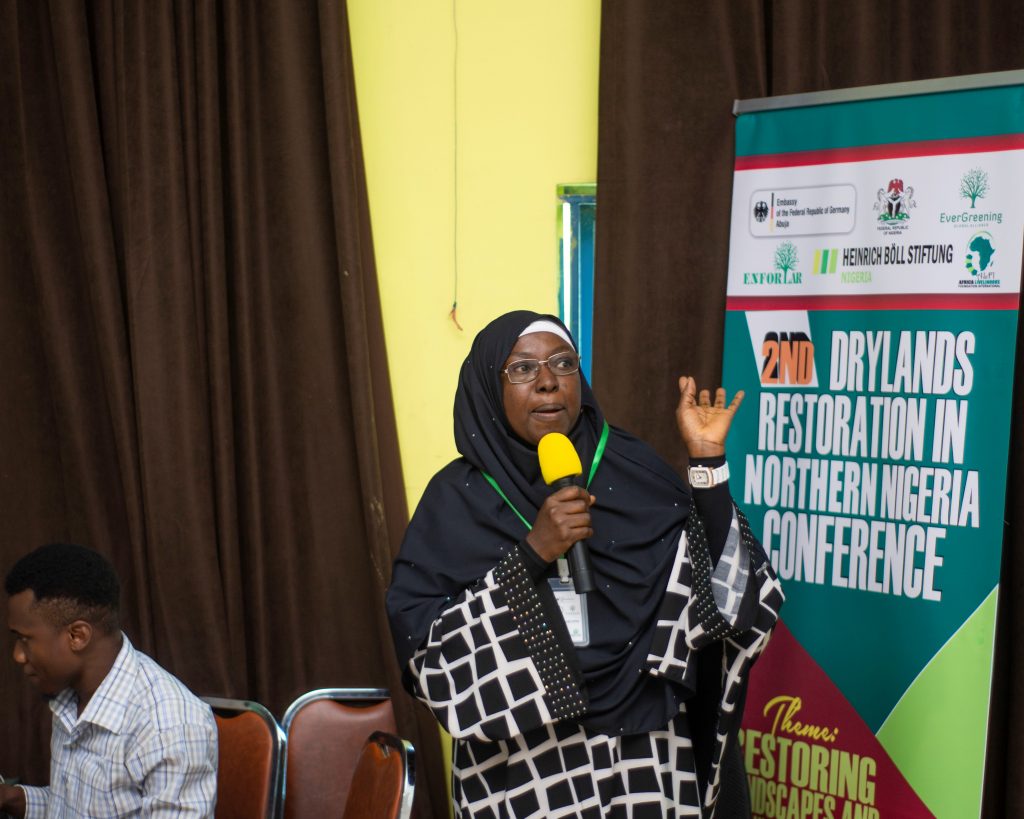
Professor Amina Mustapha, Deputy Director, Centre for Drylands Agriculture, Bayero University Kano, speaking at the Conference
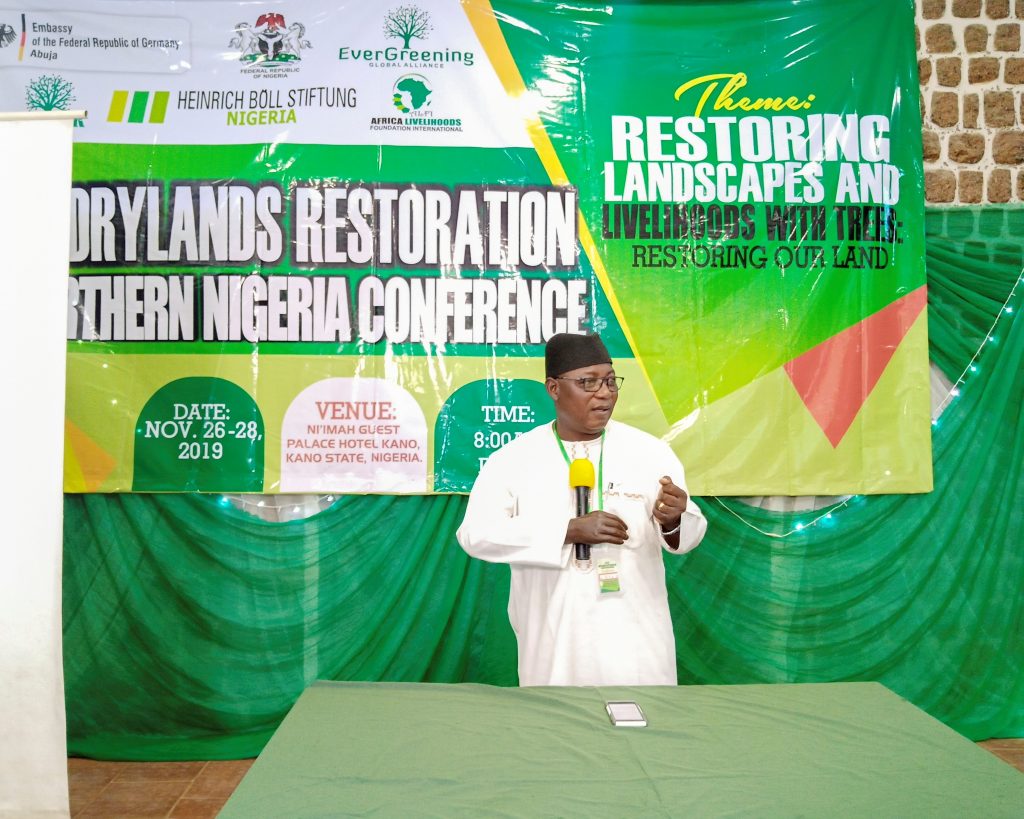
Pastor James Wuye speaking at the Conference
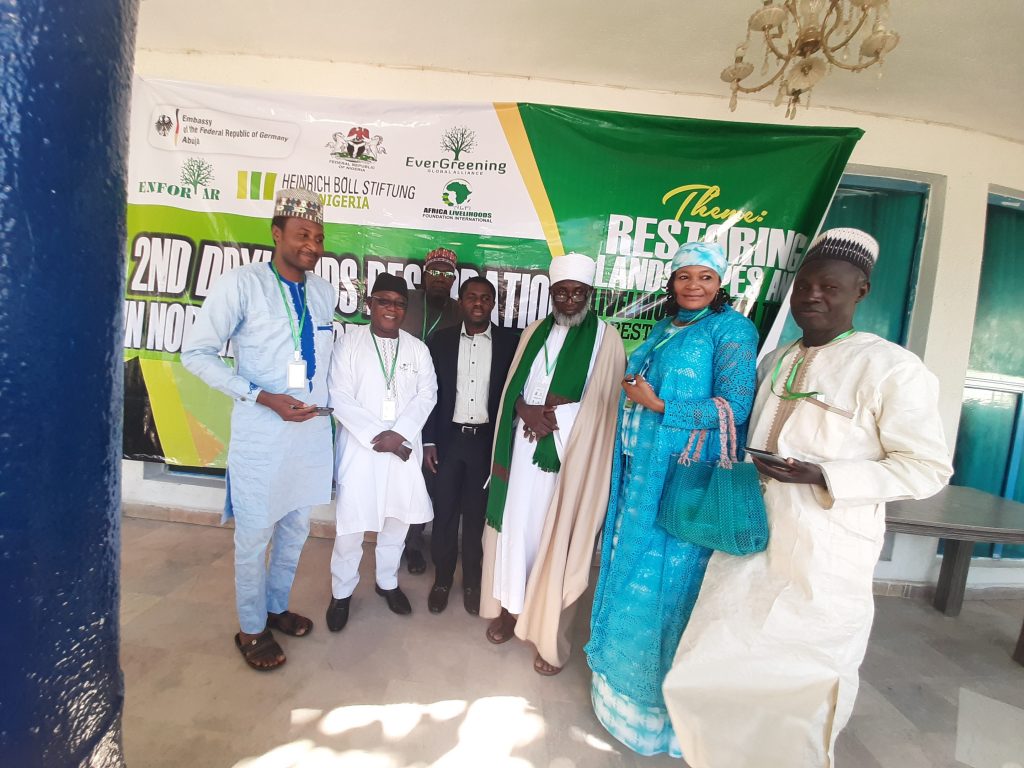
Some participants of the Conference. From Left to Right : Professor Godwin Adejo ( Consultant ); Rev James M . Wuye IMC; Mr. Mustapha Galadima – All farmers Association of Nigeria Yobe State; Dr. Kelechi Eleanya GEA, Imam Ashafa; Ms Shuaibu Binta Rabi (Consultant); State Director from Maiduguri, Borno State.
Dr Kelechi Eleanya emphasised that ‘by setting up a restoration focused agenda, we can create a practical and measurable platform that provides detailed information on restoration activities and where they are happening, who is engaged, and who needs to be engaged to increase the momentum and impact. We are looking forward to engaging over 1 million households in Farmer Managed Natural Regeneration and other restoration solutions in northern Nigeria during the coming five years.’
‘Land restoration is our priority,’ Eleanya concluded. ‘We have an opportunity to change the story of Northern Nigeria to a greener landscape and the time is now.’
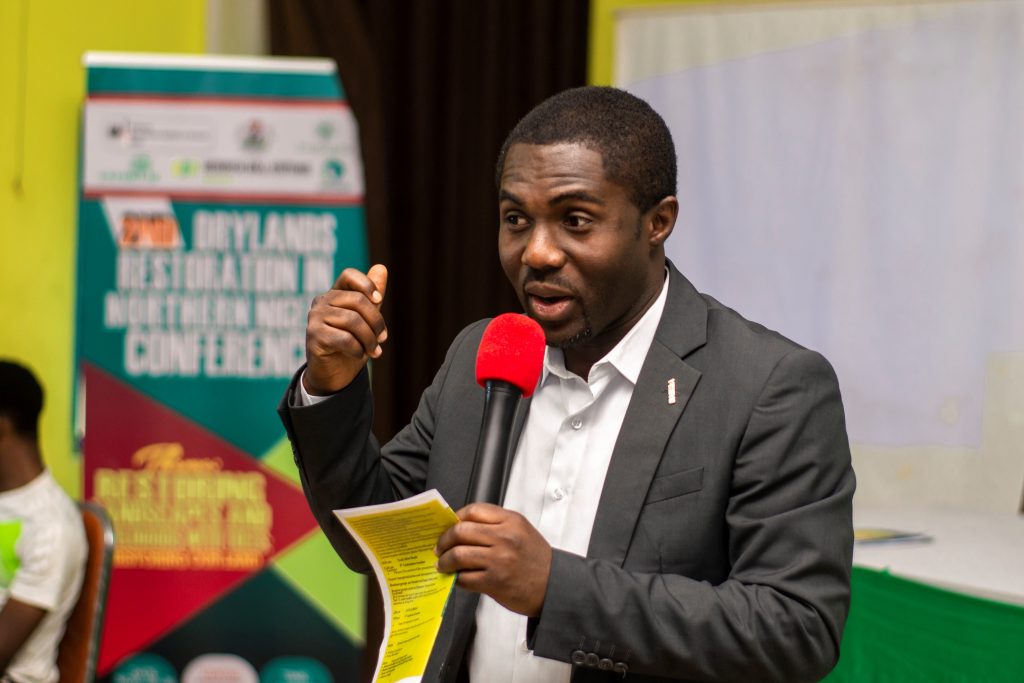
Dr. Kelechi Eleanya, Team Leader and Conference organizer
The EverGreening Network for Forest and Land Restoration in Nigeria and the Global EverGreening Alliance give special thanks to the German Embassy in Abuja and the Heinrich Boll Foundation in Nigeria for providing financial support for the conference.